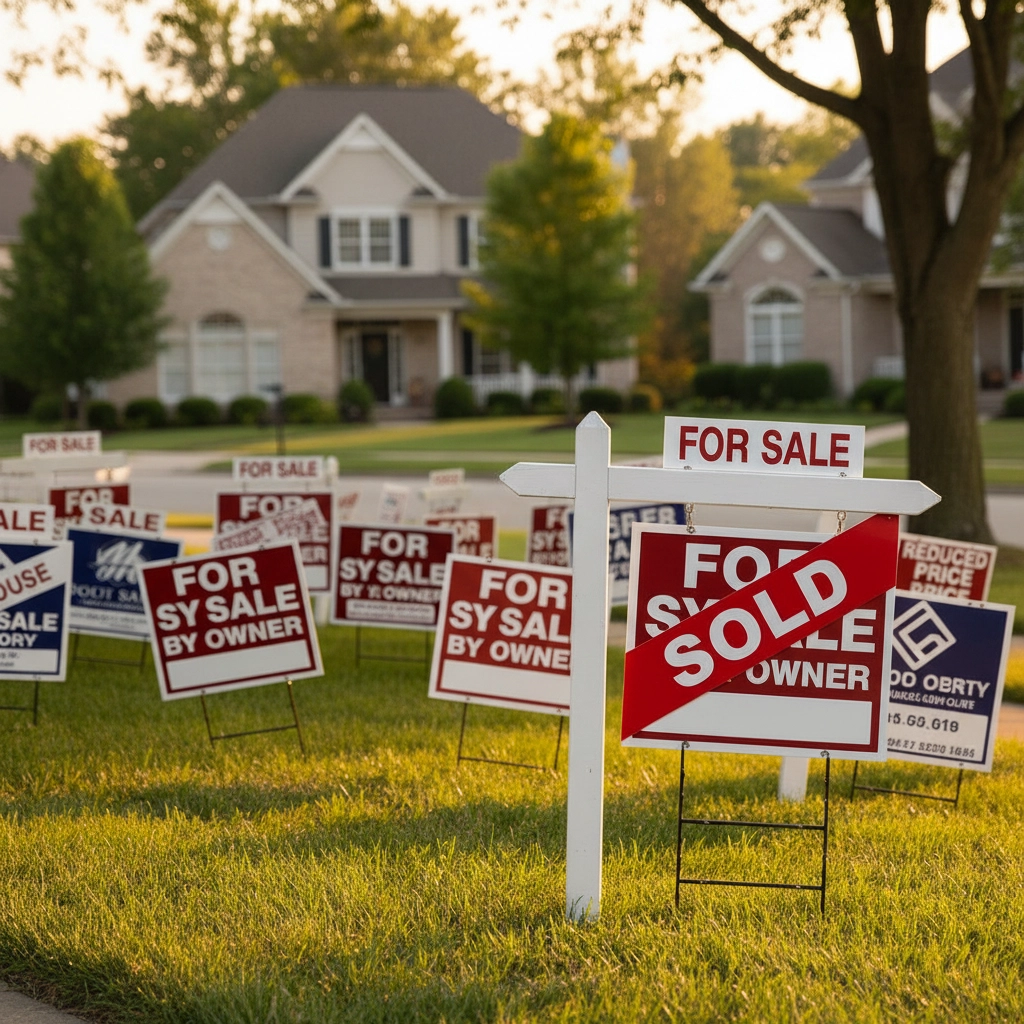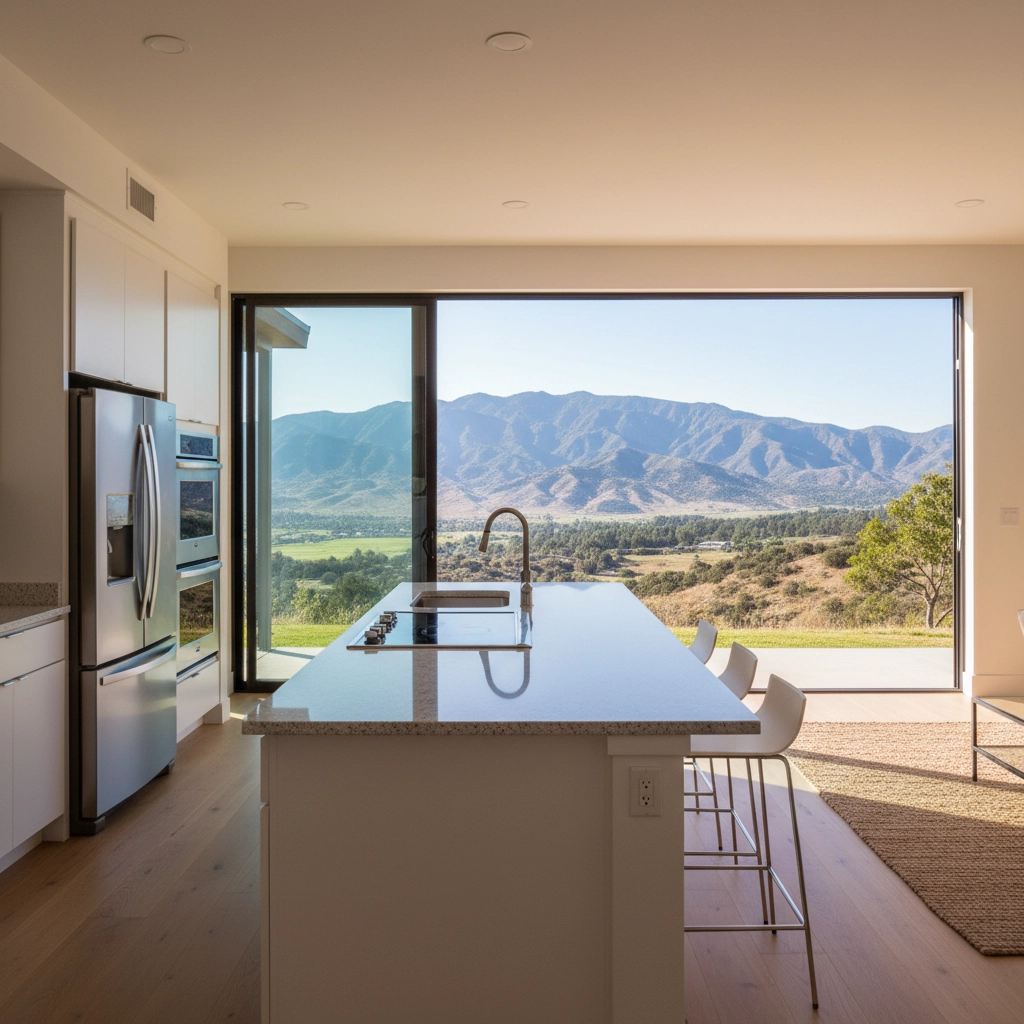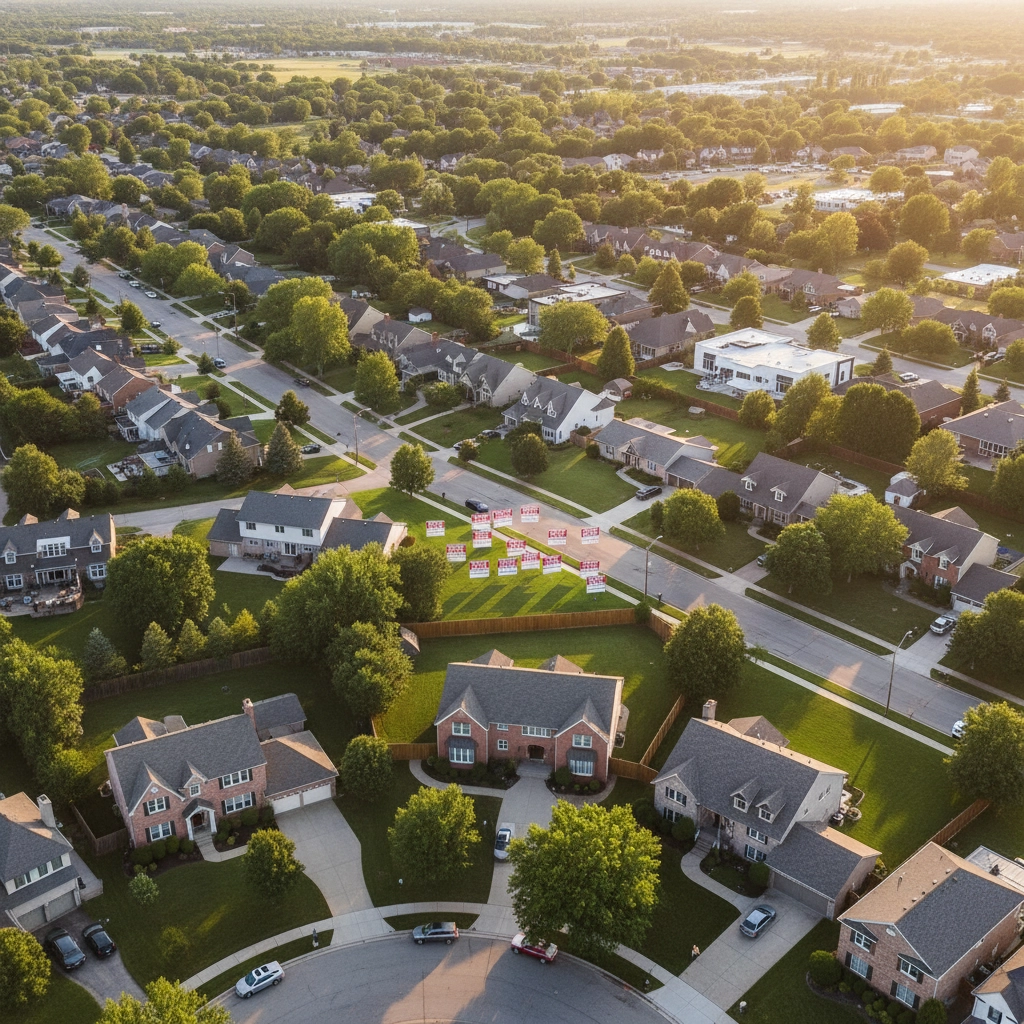
Stop Wasting Time on Overpricing: 5 Strategic Seller Moves That Actually Work in 2025
Chattanooga Robert Wills November 4, 2025

Chattanooga Robert Wills November 4, 2025
Overpricing your home is the fastest way to watch it sit on the market while similar properties sell around you. In today's Tennessee Valley and North Georgia markets, sellers who price strategically are closing deals faster and often for more money than those who start too high and chase the market down.
The data is clear: homes priced correctly from day one sell 23% faster and typically net sellers more money after accounting for carrying costs, price reductions, and market timing. Here are five proven strategies that smart sellers are using right now to maximize their returns without falling into the overpricing trap.
The old approach of pricing based on what you paid five years ago or what your neighbor's house sold for last spring won't cut it anymore. Dynamic pricing uses real-time market data to set competitive prices based on current conditions, not outdated comparisons.
This means looking at what homes are actually selling for right now in your specific area: not just what they're listed at. In East Brainerd, for example, we've seen properties initially listed at $450,000 sit for months, while similar homes priced at $425,000 based on recent sales data sell quickly and often receive multiple offers that push the final price above $440,000.

The key is monitoring active market conditions weekly. Interest rates, inventory levels, and seasonal demand all shift pricing dynamics. A home that would have been priced at $380,000 in January might need to be $365,000 in July to attract the same buyer interest, but could command $395,000 in September when inventory tightens.
Your real estate agent should be pulling fresh comparable sales data every two weeks and adjusting your pricing strategy accordingly. This isn't about constantly changing your listing price: it's about getting the initial price right based on current market realities.
This might sound counterintuitive, but pricing your home 3-5% below recent comparable sales often results in higher final sale prices than traditional pricing methods. Strategic underpricing creates urgency and competition among buyers rather than the lengthy negotiation standoffs that happen with overpriced listings.
Here's how it works psychologically: buyers perceive they're getting a deal, which triggers fear of missing out. When multiple buyers compete for what they see as a fairly priced home, bidding wars naturally develop. In Hixson and Signal Mountain, we've seen homes priced strategically below market sell for 2-7% above asking price within the first week.
The strategy works best when inventory is limited and buyer demand is strong. For instance, a home that might traditionally be priced at $520,000 could be listed at $495,000, attracting more showings and creating competition that drives the final price to $525,000 or higher.
This approach requires confidence and the right market conditions, but when executed properly, sellers often net more money in less time compared to starting high and reducing price over several months.
One of the biggest pricing mistakes sellers make is basing their asking price on what they need or want rather than what buyers are willing to pay. Value-based pricing focuses on what specific features, location advantages, and market conditions make your home worth to your target buyers.

This means understanding your home's unique selling points and pricing them appropriately. A home in Ooltewah with premium school access commands different pricing than a similar home in Ringgold. A property with mountain views in Lookout Mountain has different value drivers than a downtown Chattanooga condo with walkability benefits.
Work with your agent to identify what buyers in your price range prioritize most. Recent surveys show that buyers under $400,000 prioritize move-in ready condition and good schools, while buyers over $600,000 focus more on unique features, privacy, and lot size. Price your home based on how well it delivers what your target market actually wants.
If your home needs updates that your target buyers expect, factor that into your pricing rather than hoping someone will overlook dated features. A $480,000 home with a 1990s kitchen should be priced to account for the $30,000-$40,000 renovation buyers will need to make, not priced as if it already has granite countertops and stainless appliances.
Successful home selling requires understanding what competing properties are doing and responding intelligently. This doesn't mean matching every price reduction in your neighborhood, but it does mean staying aware of market dynamics and adjusting when necessary.
Track similar homes that come on the market after yours. If three comparable properties in your subdivision list at lower prices, buyers will naturally gravitate toward those options unless your home offers clear additional value. Monitor how long competing listings stay active, what price adjustments they make, and which features seem to attract the most buyer interest.
Pay particular attention to new construction pricing in your area. Builders often have flexibility to offer incentives or adjust pricing based on market conditions, which can impact resale pricing expectations. In developments around Hamilton County, builder incentives of $15,000-$25,000 effectively lower the competitive price point for existing homes in the area.

Your response to competition should be strategic, not reactive. If similar homes are taking price reductions, analyze why. Are they overpriced for current conditions? Do they have features or issues yours doesn't? Sometimes the right response is a price adjustment; other times it's improving staging, enhancing marketing, or highlighting unique benefits your competition lacks.
If your timeline is tight or market conditions are challenging, market penetration pricing can help you sell quickly while still maximizing your return. This strategy involves pricing competitively low initially to capture price-sensitive buyers and create quick momentum.
This approach works particularly well if you're relocating for work, need to settle an estate, or want to avoid carrying two mortgages. Rather than testing the high end of the market for months, you price to attract immediate interest and move quickly.
For example, if comparable homes in Soddy Daisy are selling in the $340,000-$360,000 range after 45-60 days on market, you might price at $335,000 to sell within 2-3 weeks. The slightly lower price often attracts multiple interested buyers, potentially pushing the final price back toward market value while achieving your timeline goals.
The key is committing to this strategy from the start rather than starting high, waiting months with no interest, then reluctantly dropping prices. Starting high and chasing the market down signals desperation to buyers and weakens your negotiating position. Starting with competitive pricing signals confidence and market awareness.
These strategies all share a common principle: let market data, not emotions, drive your pricing decisions. Sellers who succeed in 2025 use real market intelligence to set strategic prices that attract buyers, generate competition, and maximize returns.
The Tennessee Valley and North Georgia markets reward sellers who price intelligently from day one. Whether you're selling in East Ridge, LaFayette, or anywhere in between, the properties that sell fastest and for the best prices are those that respect current market conditions while positioning themselves competitively.

Working with a real estate professional who understands these strategies and has access to current market data is essential. They can help you analyze comparable sales, understand buyer behavior in your price range, and develop a pricing strategy that achieves your goals without the costly delays that come with overpricing.
Remember, the goal isn't just to sell your home: it's to sell it for the best possible price in a reasonable timeframe. These five strategic moves help you accomplish exactly that while avoiding the expensive mistake of overpricing in today's competitive market.

Chattanooga
Simple strategies to get your home sold faster and for top dollar in today’s market.

Chattanooga

Chattanooga
Don't let interest rates keep you from your dream home—here’s what buyers need to know in today’s market.

Chattanooga
Smart Moves, Best Neighborhoods, and Pro Tips for Scoring a Home in Hixson on a $400K Budget

Chattanooga
A head-to-head look at cost, resale, and market appeal so you can pick the right property type for your investment goals.

Chattanooga
A comprehensive comparison of investment opportunities between North Georgia's mountain communities and urban markets to help you make the smartest real estate decisio… Read more

Chattanooga
Understanding what today’s lower mortgage rates mean for buyers and sellers in the Tennessee Valley housing market.

Chattanooga
Your Dream Home Awaits – But Only If You Avoid These Costly First-Timer Traps

Chattanooga
Smart strategies to grow your wealth through homeownership
Work with a dedicated real estate professional with deep roots in Chattanooga, who combines local expertise, a passion for client satisfaction, and cutting-edge technology to make your home-buying experience seamless and stress-free.